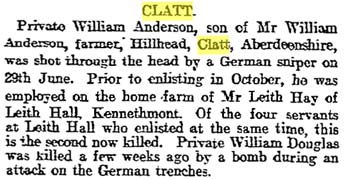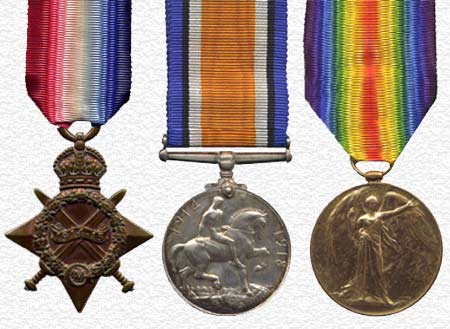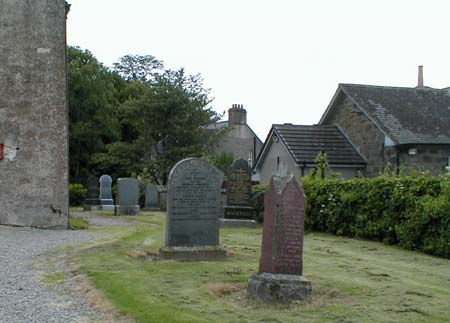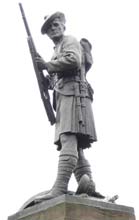|
William Bruce Anderson was born at Seggieden on 9th November 1890, the eldest son of William and Elsie Anderson. His father was tenant in the croft of Muirs of Seggieden on the Leith Hall Estate and it is known that William was working for Mr C.E.N. Leith Hay as a farm servant at Leith Hall Home Farm when he went off to fight in The Great War. Four workers from Leith Hall went away to the war and that all of them died in the conflict. The others were George Gordon and James Daun and William Douglas William enlisted at Huntly in October 1914 and arrived in France on 10th
March 1915, the day the five day Battle of Neuve Chapelle started.
It is likely that William and James Daun left Leith Hall, enlisted
together at Huntly and trained together. Both arrived in France on
10th March. As part of a new draft they may have gone straight up
to the front to join the battalion, with the British Expeditionary
Force, in the field. William's cousin L/Cpl George Anderson, Mosstown, had been out at the Front with the 6th Gordons since Nov 1914. The 6th were next into action in the attack on the German line in front of the village of Festubert, 16th-18th May and the action at Givenchy the following week. It is known that before and after Givency the 6th Gordons were in the line at Windy Corner near Cuinchy. William was hit in the head by a German spiper's bullet and it is likely he received treatment at, or was taken to, a house near Windy Corner where he died. Guards Cemetery grew up near this house which was used as a Battalion Headquarters and Dressing Station. The cemetery was named after the 4th Guards Brigade who buried in it from February 1915 until it was closed in May 1916. It was enlarged after the Armistice by concentrating battlefield burials. William Anderson died three months after his arrival on The Western Front. Move mouse over medals to view reverse William Anderson
was awarded these medals for serving his King and Country in The Great
War. William qualified for the 1914-1915 Star (left). It was awarded to all
personnel (including naval) who served in any theatre of war between
5th August 1914 and 31st December 1915, other than those who had already
qualified for the 1914 Star.
Clatt Kirkyard |
|
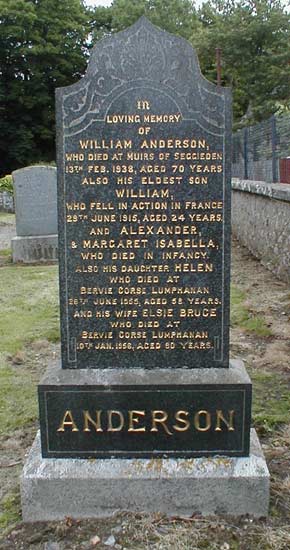 |
The Anderson family headstone at Clatt Kirkyard ~~~~~~~~ Also his eldest
son ~~~~~~~~
Photographed July 2002 |
